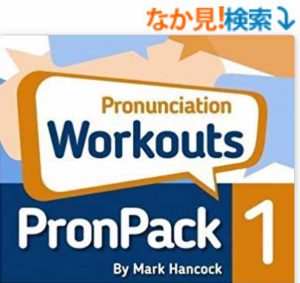This article was first published in Speak Out issue 60. Speak Out is the journal of the IATEFL Pronunciation special interest group. In this article, I will suggest that following the recognition of English’s role as a global Lingua Franca, there has been an impasse created by two conflicting reactions: dogma and denial. I will discuss the possible implications of ELF for pronunciation teaching goals, and suggest how we can distinguish features which are important for global intelligibility from those which are not. I will highlight the importance of distinguishing productive and receptive goals, and consider the issue of what part models play in a context where accent variability is a central concern. I will consider contexts where simple intelligibility is not enough. Finally, I will suggest that a shift in how we express goals, from product (model accent) to process (accommodation) may provide a means of getting past the impasse of dogma and denial. Continue reading “ELF: Beyond Dogma and Denial”
Top Ten Tips for Teaching Pronunciation
 1 Know your objective. Pronunciation is about being understood by people all over the globe. It’s not about pretending to be American or British. You don’t need to teach every small detail of the way they speak in the US or UK – very few learners will ever learn that, and there is no reason to anyway. English is a world language now – it doesn’t belong to any particular country.
1 Know your objective. Pronunciation is about being understood by people all over the globe. It’s not about pretending to be American or British. You don’t need to teach every small detail of the way they speak in the US or UK – very few learners will ever learn that, and there is no reason to anyway. English is a world language now – it doesn’t belong to any particular country.
2 I’m OK! Say that to yourself. Teachers sometimes feel they aren’t a good pronunciation model because they aren’t ‘native speakers’. That’s not true. If you are an intelligible speaker of English, you are a perfect model. When we think of English as a lingua franca, the term ‘native speaker’ no longer makes sense – we are all native speakers of it!
PronPack Arrives in Brazil!
We’re delighted to announce that PronPack is now available in Brazil from the SBS Livraria International and it’s at a great discount!
British Council Webinar!

Watch a recording of this webinar with Mark Hancock here. It took place December 13th 2018.
PronPack wins an English Speaking Union prize!
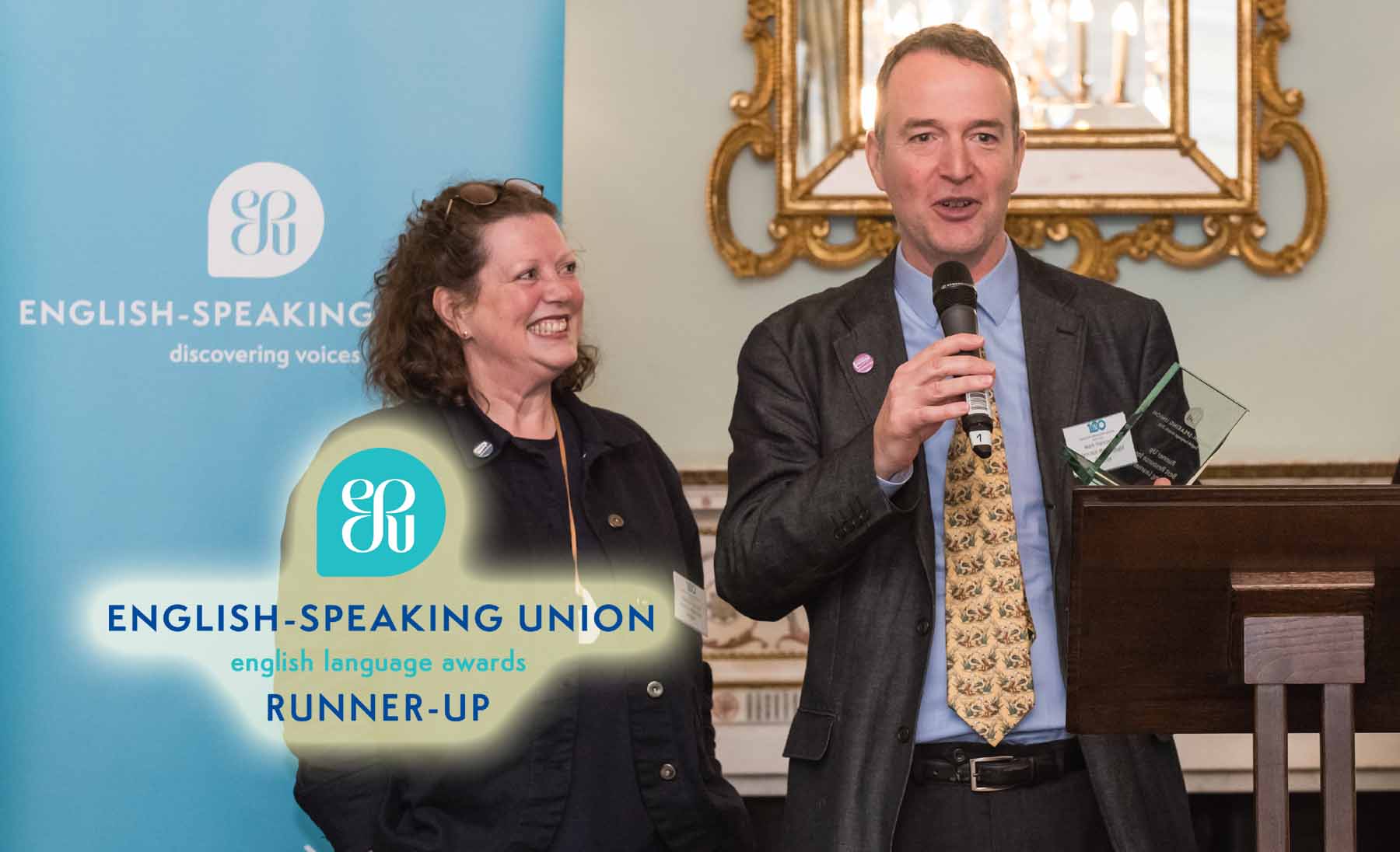
PronPack 1-4 has won an ESU prize for teacher resources in a ceremony in London on Nov 20th 2018, runner up behind David Farmer’s ‘Power-Up’ (NILE). This means that PronPack has now won two main ELT materials prizes in the same year – a rare achievement!
Sounds and Spelling
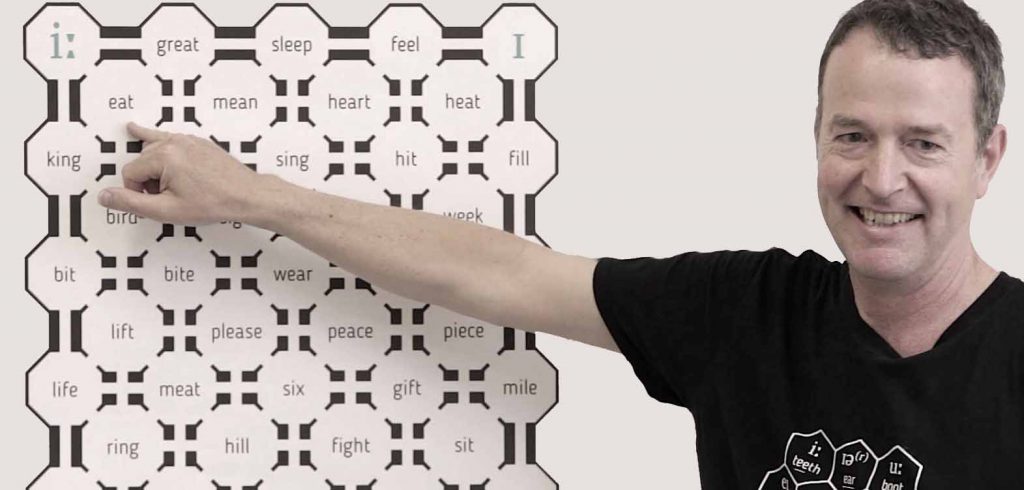
It is not always clear if sound and spelling patterns are a matter of pronunciation or of literacy, and for that reason perhaps it is sometimes overlooked in pronunciation teaching. However, in my experience, most learners come to pronunciation class already under the influence of written words and spelling-induced errors are some of the most frequent problems.
Oronyms

Homophones are sometimes more than a word. Sometimes phrasal homophones are called ‘oronyms’ In this example, the two phrases are phonetically identical, and this is made possible by the phenomenon of linking: in this instance, it is not possible to say with certainty whether a /t/ consonant is at the end of one word or at the beginning of the next!
Free delivery worldwide
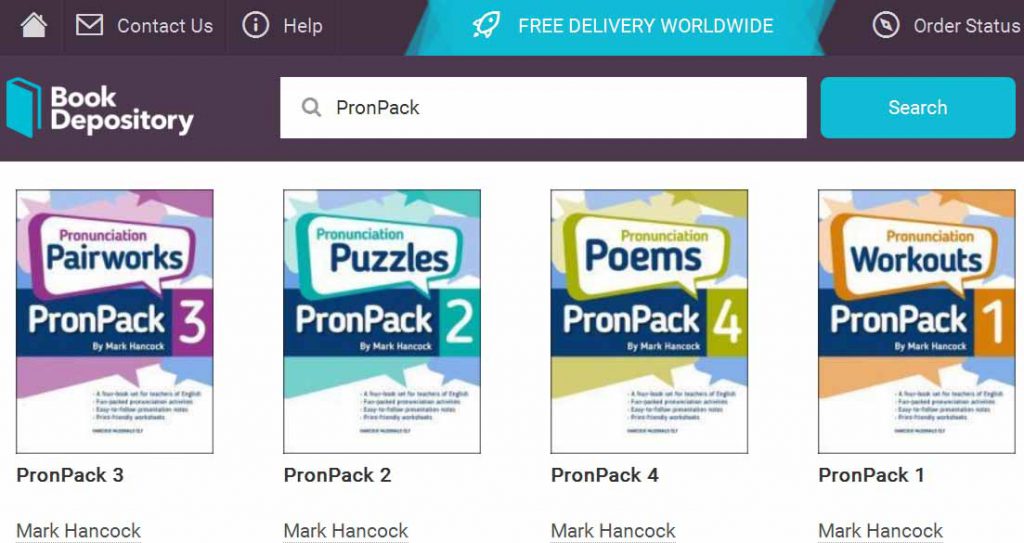
The Book Depository now lists PronPack, with free delivery worldwide!
Mr Twain
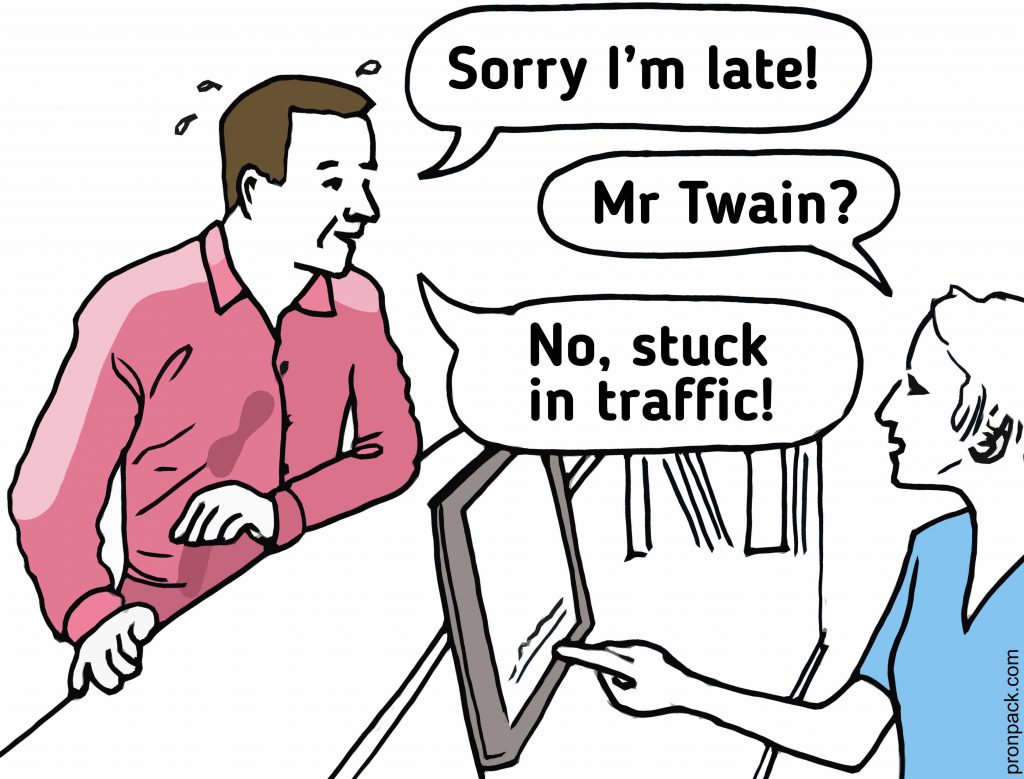 A man apologises for arriving late for his appointment. The receptionist, looking at the list of expected clients, guesses that this is Mr Twain. The man, probably not Mr Twain in fact, still has his late arrival on his mind and hears this as “Missed a train”. How was this misunderstanding possible?
A man apologises for arriving late for his appointment. The receptionist, looking at the list of expected clients, guesses that this is Mr Twain. The man, probably not Mr Twain in fact, still has his late arrival on his mind and hears this as “Missed a train”. How was this misunderstanding possible?
We may suppose that the receptionist speaks a version of English where an r is not pronounced after a vowel (eg England, Australia, New Zealand) so that “Mr” sounds like “Mista” or “Missed a”. But what about “Twain” for “train”? Well, the /r/ is possibly one of the most variable phonemes in the language, with an enormous range of pronunciations across different accents, and even from speaker to speaker. Some speakers pronounce it as something almost resembling a /w/ – possibly as many as 10% in England. There is no evidence that the receptionist is among this 10%, but evidently the man thinks she is!
PronPack in Japan!
Happy to say that PronPack is available, print-on-demand, from Amazon Japan – click on the image above to see the page. Amazon also prints-on-demand in Germany, Italy, Spain, France, the UK and the US. If you are in one of those countries, simply log onto the Amazon website and type “PronPack” into the search box.



